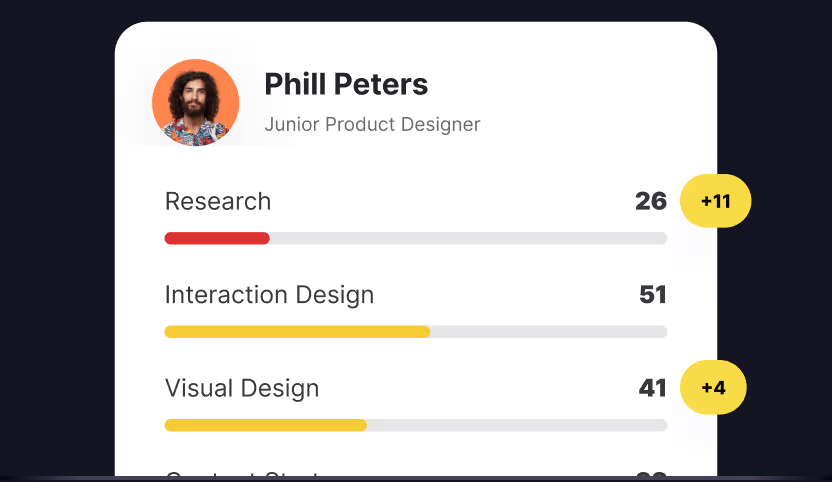
UX design is booming — everywhere we look, the need for UX designers is growing. It’s no surprise considering the UX market is predicted to grow at a CAGR of 16.2% from 2021 to 2028.
Designers are simply indispensable. Businesses need them to connect meaningfully with their users, to build a strong product, stellar user experiences, and lasting customer loyalty.
UX designers need a mixture of applied, technical, and soft skills to get the job done. Having a strong grasp on these UX designer skills sets you apart from the competition and provides an edge when trying to land your next UX role.
Different types of designers require a different set of skills. Here are the skills that’ll boost your knowledge and help you become a stellar UX designer in 2026:
- Business acumen
- Cross-team collaboration
- Customer service
- Basic coding knowledge
- Research methodologies
- UX writing
- User research
- Visual design and UI elements
- Active listening
- User empathy
- Critical thinking, curiosity & continuous learning
Before we dive in, consider measuring your design skills to evaluate where you excel, and what needs work. You can then focus on the individual skills to develop.
Applied Skills
UX designers need to be able to fit in with the rest of the team. To do that, there are some practical skills to develop.
1. Business acumen
UX designers play a key role in building enjoyable and intuitive products—but in order to do so, key stakeholders need to be fully on board. It’s the UX leader’s job to emphasize to the stakeholders that what’s good for users is also beneficial for the business itself.
Understanding business strategies and decisions and how they impact the organization's operational, financial, and sales results will help you secure buy-in for UX. Overarching knowledge enables you to better communicate how UX fits into the business, and where it can benefit big-picture business goals.
How can you improve your business acumen knowledge?
The first step to improving your business acumen is to understand the business model—this gives you a good idea of the business's profit-making plan and how UX design can support it.
2. Cross-team collaboration
Collaboration makes you a better designer. It’s through communicating and collaborating with others that you can perfect the research process and design UX-informed products.
You don’t have to include them every step of the way but, by requesting insights from developers, customer service representatives, and sales representatives, you can get better customer insights that lead to stronger UX design.
How can you improve cross-team collaboration?
Coming up with superior design solutions involves learning how to work as a team, acting on organizational feedback, and incorporating new ideas. However, when it comes to UX design, your colleagues likely have little to no idea.
It’s essential that UX designers not only have a good understanding of the business, but also that the rest of the organization have a grasp on some key UX design lingo. This ensures teams can collaborate to build the best product possible.
3. Customer service
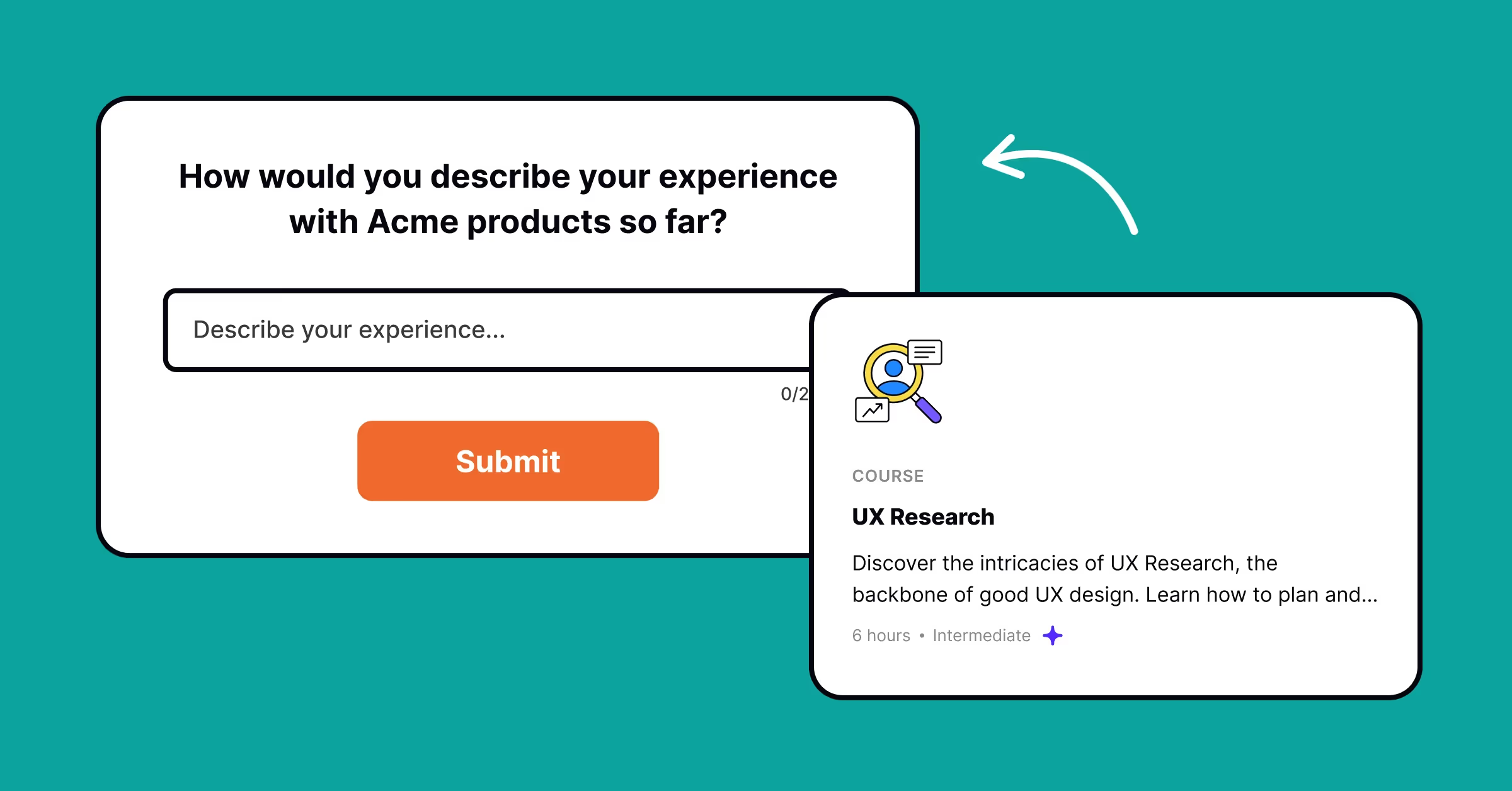
During the UX research and design process, you’ll likely work directly with customers. This comes with its own unique challenges and requires UX designers to understand and communicate with customers.
You need to know how to address customer needs by developing your customer service skills, including expectation management, timely assistance, good communication, adaptability, time management, and excellent problem-solving skills.
How can you improve customer service skills?
Effective customer service knowledge and skills is key, as the UX design process often involves working directly with customers and users—often with user interviews.
Spend some time with the customer support team and listen to their best practices for working directly with customers. It’s well-worth paying attention to customer service scripts to learn go-to language for sensitive situations.You’ll also be building your cross-collaboration skills—win-win.
Is your design team's knowledge stagnating? Uxcel helps you keep your team's skills fresh with a suit of powerful learning and skill testing tools. Upgrade Your Team's Design Skills in 5 Minutes per day!
4. Basic coding knowledge
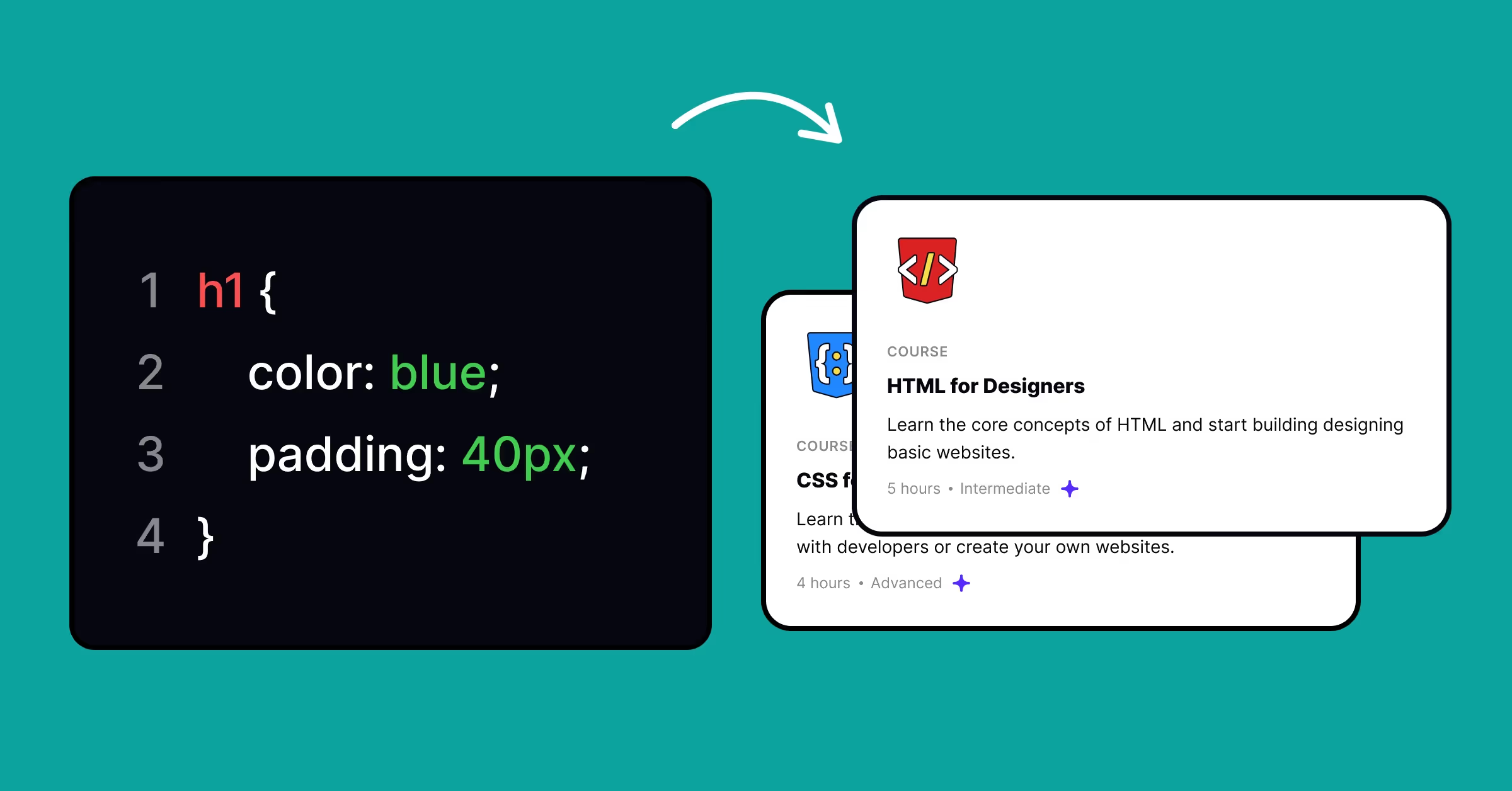
As a UX designer, you don’t need to know the ins and outs of programming, however having basic coding knowledge is a big plus. It’s a great way to ensure you build development-friendly designs to solve the problem at hand.
When you’re on the lookout for a UX job, most companies won’t expect you to implement the UX-informed design you build—they’ll leave that to the developers. However, with basic coding skills and knowledge, you’ll be able to build UX designs that can be implemented—instead of designs that simply aren’t technically possible.
How can you improve your coding knowledge?
One way UX designers can build feasible designs is by learning the basics of some key coding languages. HTML for Designers frequently comes in handy, as does CSS for Designers.
Whether you focus on one language or aim to learn a little of many—having some coding and development knowledge can massively help up your UX design game.
Technical Skills
Technical skills are essential for a successful career in UX design. These skills showcase important knowledge and abilities that all UX designers must develop to become experts.
Below are a few must-have skills you’ll want to cover:
5. Research methodologies
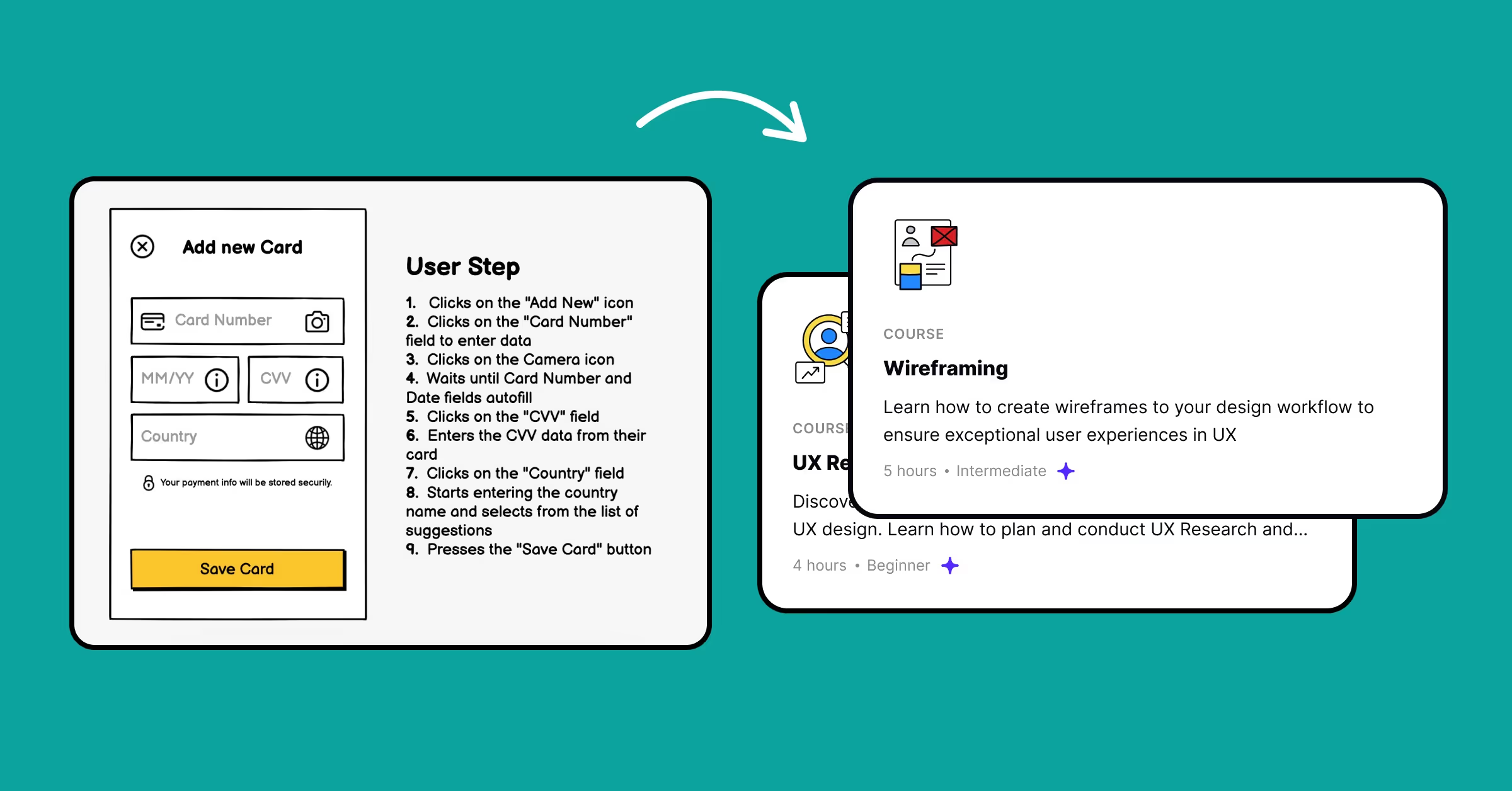
Great UX research and design requires in-depth knowledge of a wide variety of UX research methodologies. This includes knowledge on how to develop prototypes, wireframes, user flows, mockups, and more to gather insightful feedback.
How can you improve your knowledge of research methodologies?
Whether you’re starting your UX career or a seasoned UX team lead—building and improving these skills is a must. Luckily for you, you’re not short of support.
There are ample online courses and lessons to support your UX growth, such as Uxcel’s library of UX learning resources. You can develop your understanding of wireframes and how to build them, creating mobile prototypes, card sorting, and more.
Plus, Uxcel’s online courses include tests and quizzes to guide your learning journey and evaluate your progress. A strong understanding of the ways in which you can gather insights for UX design is key for productive research sessions.
If you're choosing between a career of a UX designer and UX researcher, explore the differences between the UX researcher salary and UX designer salary and job requirements to make a meaningful decision.
6. UX writing
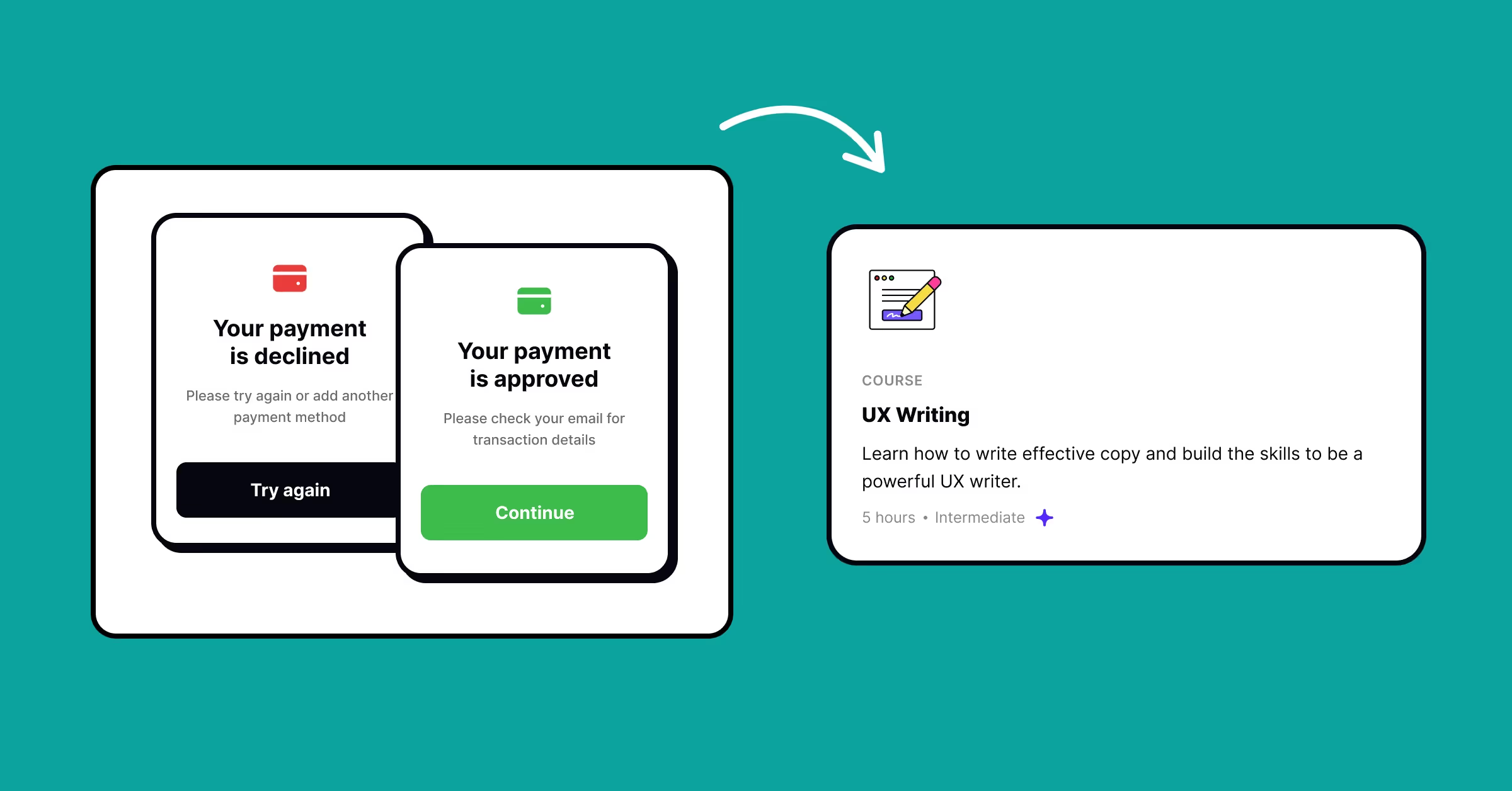
Compelling microcopy impacts your user’s experience when they’re interacting with a product. That’s why UX writing is one of the fundamental skills that can turn good UX designers into great ones.
How you choose to phrase instructions, calls to action, error messages, and captions will determine how seamlessly the user can navigate the interface and how likely they are to use it again. It’s not something you’ll have to tackle with every UX project, but it’s a key skill for a well-rounded UX designer.
How can you develop your UX writing knowledge?
UX writing is a broad area, but here are some of the topics you’ll want to cover:
If you’re keen to learn the lot, you can also take Uxcel’s UX writing course to give you a comprehensive understanding of writing with the user experience in mind.
7. User research
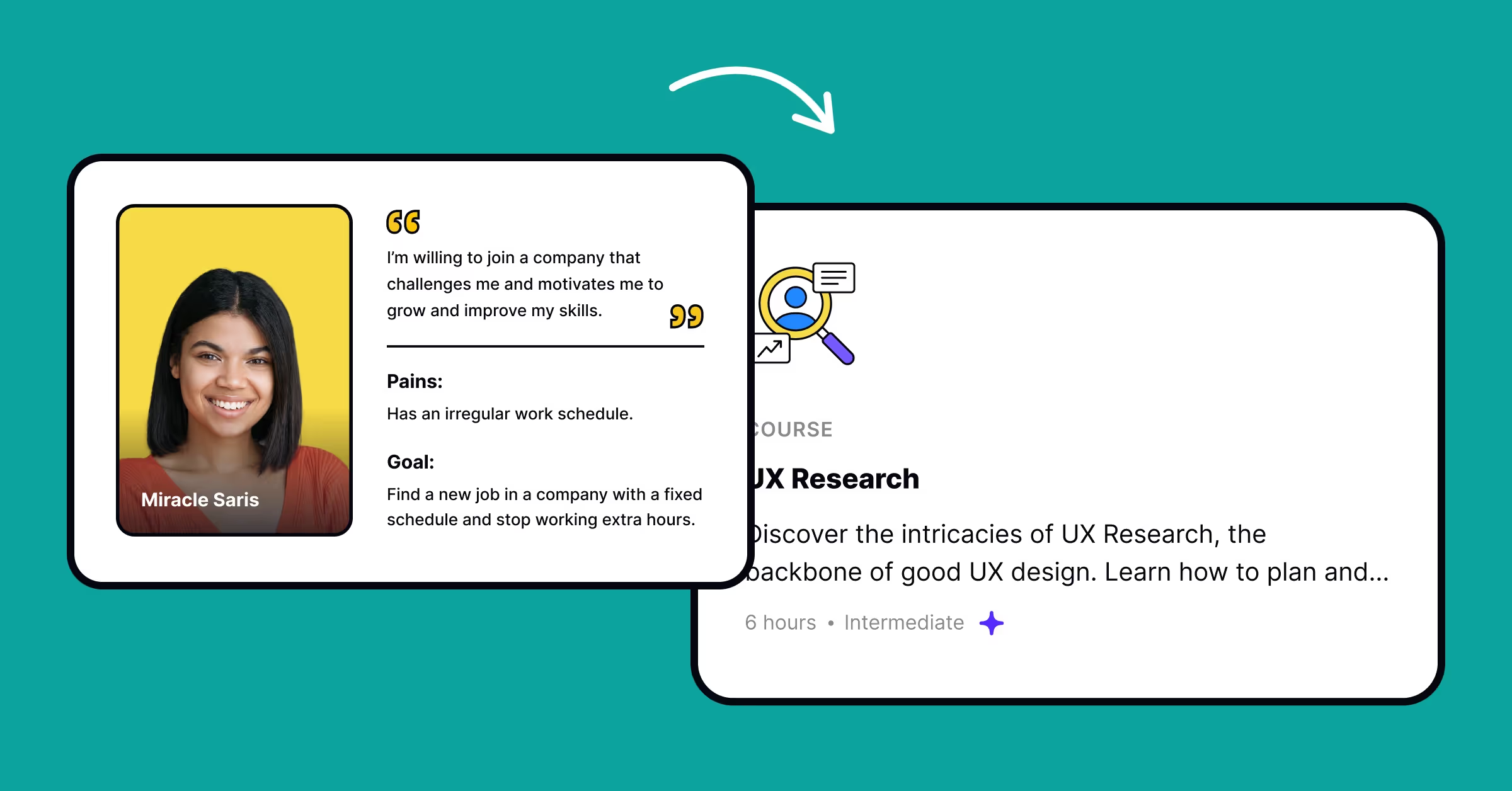
Before you create a product that solves an existing problem or bridges a gap, you need to understand who the user is. This is where user research comes in. It’s a key stage of the product design cycle that enables you to identify who it is you’re designing for.
Perfecting your user research skills is a must for good UX design. Improving your design skills can be tricky, but you’ve got ample online resources to help you.
How can you develop strong user research skills?
There are ample online resources to support your user research skills. For example, you can enroll in this in-depth user research course offered by Uxcel.
The course explores user research in detail and will help you get familiar with various aspects of research including methodologies, personas, UX mapping methods, and research ethics & biases and their impacts.
8. Visual design and UI elements
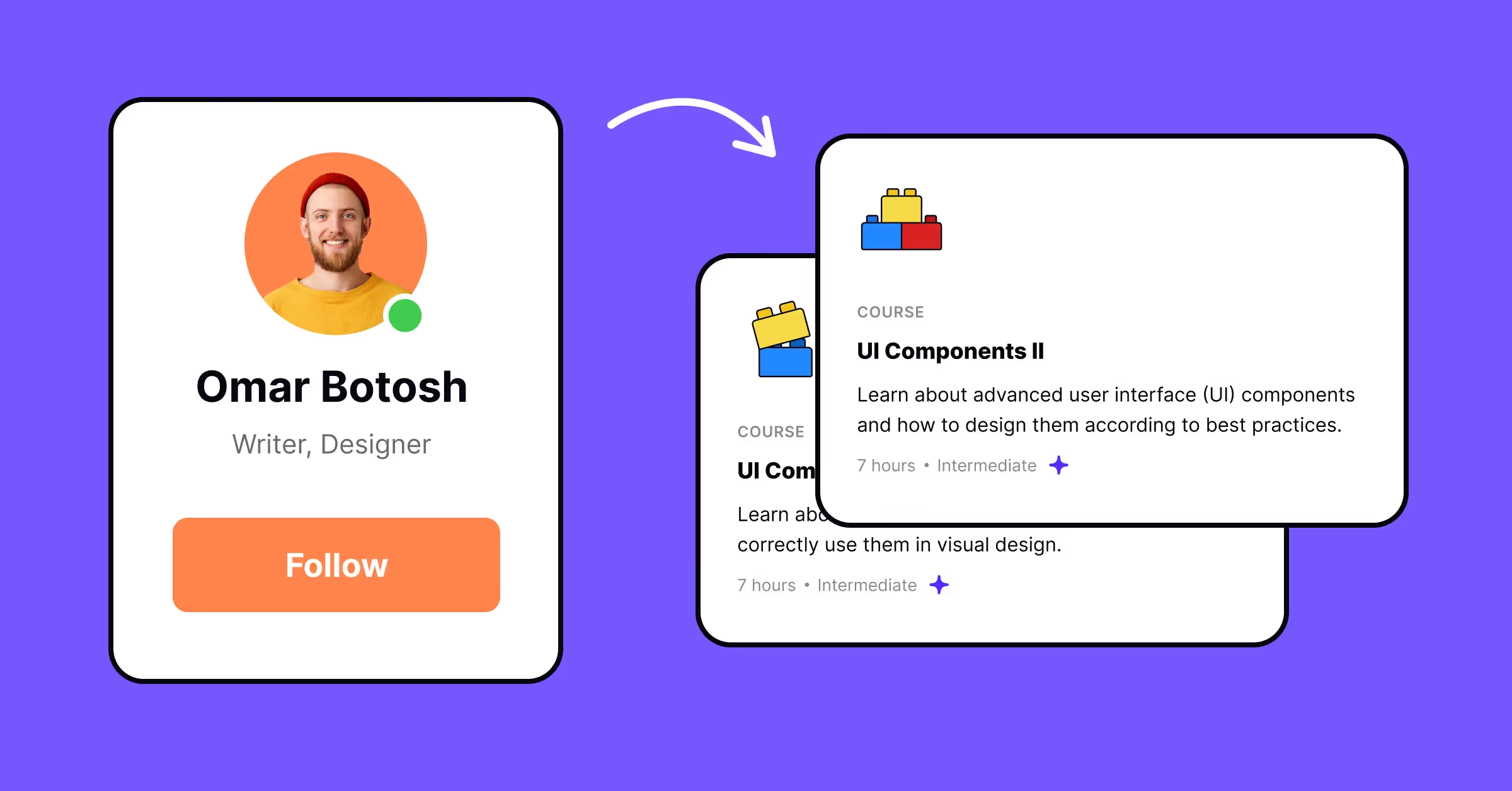
UX design isn’t just about what looks good—it’s about creating a cohesive product experience for users. This includes diving deeper into design theories and research to understand the impact of different designs. Excellent visual communication captures the user’s attention and invites them to perform an action.
You want to create a design that not only looks good, but also gets the job done.
How can you develop better visual design knowledge?
UI design involves a wide variety of best practices, from the colors used to the font choices available.
For a complete overview of UI design you can enroll in Uxcel’s UI Components course. This includes lessons on color theory, typography, and more.
Soft Skills
In addition to technical skills, companies when hiring UX designers also pay attention to perfect certain soft skills that come in handy in different work settings. Developing soft skills can be tricky, but it’s made a lot easier by knowing what you need to improve.
Let’s take a look at some key soft skills for productive UX design.
9. Active listening
Active listening is a crucial aspect of UX research and design, as you’ll spend a lot of time communicating with your team, clients, or customers.
Your attentiveness and communication skills determine how well you understand user needs, feedback, and insights—all of which play a huge role in creating meaningful products.
How to build your active listening skills?
You may assume that there’s nothing difficult about actively listening to others—that it’s something that comes naturally. That’s not true. It requires a deliberate, conscious effort and a steady stream of focus.
Active listening is key when conducting user interviews, and the best practice for user interviews can be greatly beneficial for UX designers in general. Developing your user interview skills will help improve your active listening, and ensure you get the best insights possible.
10. User empathy
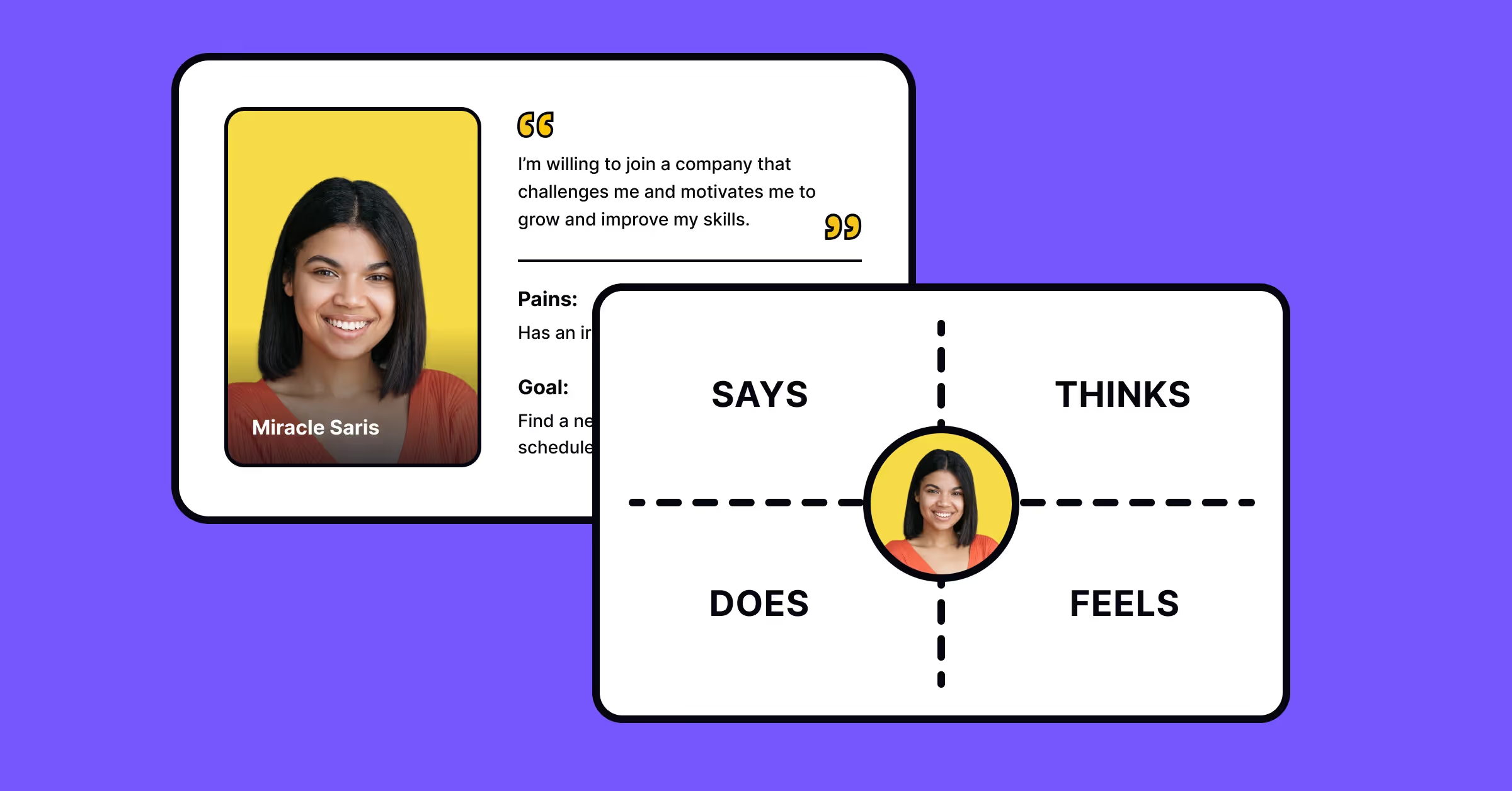
To solve a user’s problem as a UX designer, you’ll need to step into their shoes to understand their pain points. This is why user empathy is a necessary skill for a designer.
When you understand other people’s issues and frustrations, you’re automatically better equipped to find meaningful solutions for them. As a UX designer, empathizing allows you to look into situations from different perspectives and create a connection between yourself and the user.
How can you develop better user empathy?
You can become more empathetic by becoming an active listener, improving your observation skills, asking for feedback regularly, and putting yourself in the user’s shoes.
11. Critical thinking, curiosity, & continuous learning
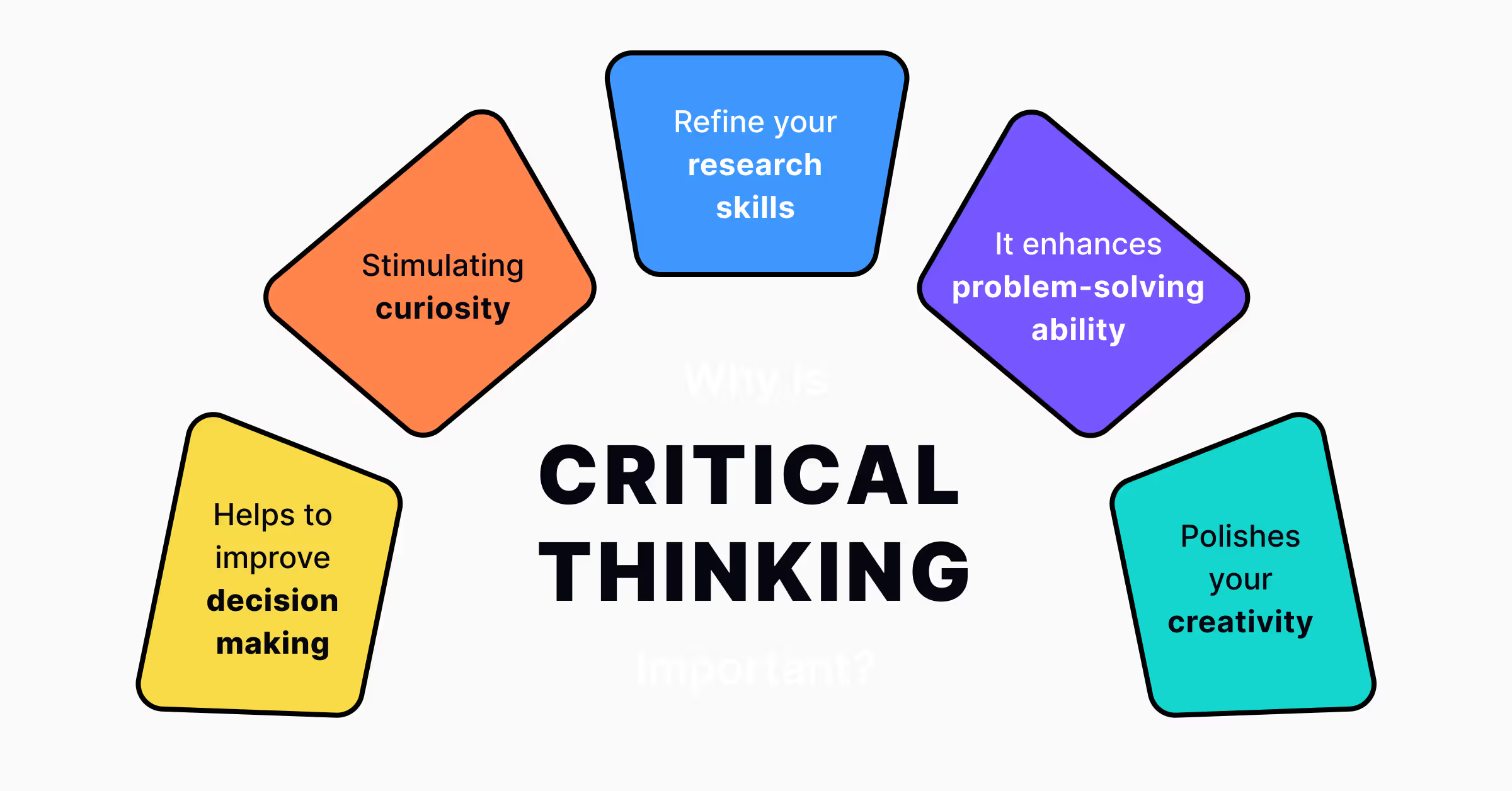
User experience design is a constantly evolving and expanding field. To become a successful designer, you’ll need to keep a close eye on the industry and how it evolves.
Stay up-to-date with anything new that might be happening and keep learning ways to improve your user research, UX analytics, and usability testing techniques and methods.
Other than that, you also need the ability to think critically. UX design isn’t just about making things work and look pretty; it involves making many careful decisions by analyzing, evaluating, researching, observing, and reflecting to create a seamless design system.
How can you remain curious about UX design?
As a user experience designer, it's your job to gather and use information in a relevant way.
It may seem like a lot to learn, but you can always improve your design skills by taking inspiration from other UX designers and their stories.
How can you start improving your UX skills?
We’ve given some skill-specific tips throughout the article, but here are some tips for developing your skills overall.
Develop your knowledge with online courses
Develop your skills in a more structured way by enrolling in UX design courses. These will help you improve all the necessary skills we’ve listed above, and enable you to focus on the exact skill you want to improve.
Uxcel’s courses to build UX design skills are a great place to start. The beginner-friendly courses require no prerequisites, and cover skills like UX foundations, user research, wireframing, prototyping, design terminology, UI components, and more.
You’ve also got the option to take more advanced courses if you’re a seasoned UX designer.
Stay up to date with news
Staying on top of the fast-evolving UX design industry is key for being a well-rounded UX designer. You can keep up with the current happenings and trends in the UX world by reading up.
Here are some online UX blogs to get you started:
Join a UX design community
Connecting with other UX designers is a great way to learn and improve. You can discuss new UX developments, best practices, and research techniques with other like-minded designers.
Consider joining the following communities:
- Uxcel Slack UX Community
- Maze UX Community
- User Experience Professionals Network
- Give Good UX Company of Friends
Connecting with others can be insightful, and a key resource for developing as a UX designer.
Boost your UI/UX design skills with Uxcel
Working to improve your UX design skills helps develop your knowledge, build design skills to get hired, and become an all-round better UX designer.
Plus, with Uxcel, it’s easy to build your skills. You’ve got ample online courses—ranging from UX design foundations to design composition. You’re then able to test design skills directly following your course to determine whether you’re good to move on, on what to dig deeper into the topic.
Whether you’re an individual looking to develop your UX writing skills, or an organization looking to upskill the entire team—Uxcel has a course for you.




